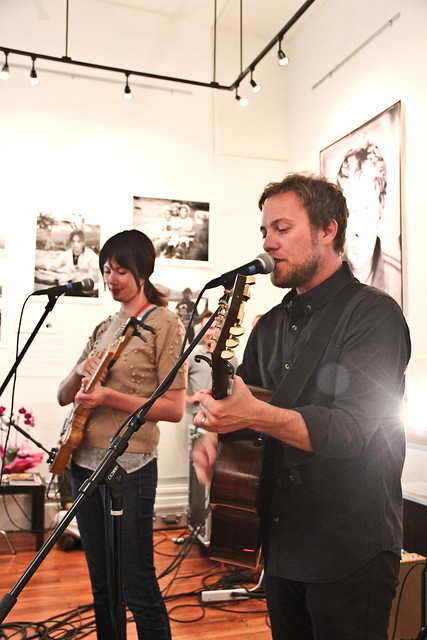
Creativity usually isn’t a big problem for students at SF State. But funding that creativity can be.
Outlets for art funding – federal grants, record labels, millionaire patrons and state budgets, for example – are shrinking. In 2010, California only gave 12 cents per person to support public art according to the California Arts Council. And that’s why people are turning to the internet, Kickstarter.com in particular.
“Kickstarter is really just a place for the community to come to find funding for their project,” said Justin Kazmark, a spokesman for the site. “It’s at the intersection of commerce and patronage.”
Anyone can pitch an idea to the site, which was founded in 2009. Those ideas vary widely, whether it be a bicycle rim that illuminates the ground, a stylish desktop habitat for jellyfish, or a series of music videos and a tour, like San Francisco band Battlehooch did last year. Then anyone who stumbles across the project can donate to help make it a reality in exchange for the finished product or a unique experience.
Projects of all sizes are welcome. Some are huge. Artist Spencer Tunick, known for canvassing landscapes in naked people, raised more than $116,270 (his goal was $60,000) by June to take his signature image to the Dead Sea. Some goals are funny and odd. Alexis Finch of Chicago is trying for $5,000 to produce a “Bicycle Chick Pinup Calendar.”
However, the project has to be approved by the site, and it doesn’t get any of the “pledged” money unless its goal is reached within a maximum of 60 days. The “all or nothing” rule is shaped to keep patrons from losing money on failed ideas, and to keep the entrepreneurs from biting off more than they can chew.
Each idea has to involve concrete goals, “something with a beginning and an end,” Kazmark said. In return, those who donate are commonly given memorabilia, products or a fun experience related to the project.
A proposal to fund a Sicilian vacation probably won’t land on Kickstarter, but raising money to go to Italy to research a novel might. It did for Dan Stone earlier this year.
In about a week, he estimates, his goal of $2,000 was funded with $308 extra dollars in tow. The novelist, ex-teacher and editor was then off to Italy to trace the steps of the infamous Italian painter and scoundrel Caravaggio, surprised by how easy it was.
Stone is currently working on the novel, and is also working on his second Kickstarter venture. The project is a multifaceted magazine called Alibi, which will be “exploring relations between literature and rock and roll.”
“We’ve got subscribers in Australia, all over Europe, and they all found it over Kickstarter,” Stone said. “It links up with other social networks so word can spread pretty quickly.”
The idea for Kickstarter came in 2002 when one of the three founders, Perry Chen, wanted to throw a concert during the New Orleans Jazz Fest. He figured it would cost between $15,000 and $20,000, then decided it wasn’t worth the risk.
But if there was a way to test an idea before an audience, Chen thought, someone could know beforehand whether an idea would be profitable.
Now, two years after their founding, Kickstarter says 900,000 people have backed 11,500 projects with a total of more than $85 million. They report 40 percent of approved pitches end up fully funded.
“It’s a bit backwards from usual artistic form,” said Christian Olesen, a music producer who is waiting on approval for his Kickstarter project. “Funding is usually searched for after the project.”
Of course, all of that comes with a price; this is a company after all. If a project is fully funded, Kickstarter takes 5 percent of the total raised. The online retailer Amazon takes another 3 to 5 percent for processing the payment through their web services program.
Other sites like Kickstarter exist, the company estimates about 100 similar sites have popped up, but none have been as successful or popular. Another well-known site, donorschoose.com, allows people donate to classroom projects of their choice.
There is plenty of advice for newcomers. Kazmark says most of the companies can be found in the “Kickstarter School” segment of their website. Both he and Stone mentioned taking time on a creative, thought-out pitch as being important, as well as having a personable video introduction.
“You kind of learn as you go through what works best,” Stone said. “The best is finding creative ways to put out the project.”







